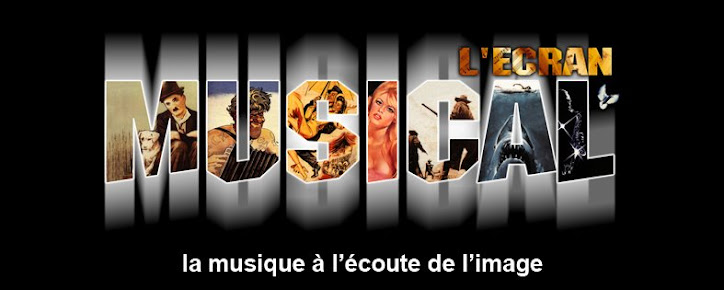EM/f.PC/LP 0033
GAY PURR-EE (1962)
CHAT C'EST PARIS
Real. Abe Levitow
Mus. Harold Arlen
Dir. Mus. Mort Lindsay
LP Warner Bros 1479 - Mono (US)
Side 1.
1. Gay Purr-ee Overture (Arlen-Harburg)
Int. Judy Garland and The
Chorus
2. Mewsette
(Arlen-Harburg)
Int. Robert Goulet
3. Little Drops of Rain (Arlen-Harburg)
Int. Judy
Garland
4. The Money Cat (Arlen-Harburg)
Int. Paul Frees and The Mellow
Men
5. Portraits of Mewsette - Orchestra
6. Take My Hand Paree
(Arlen-Harburg)
Int. Judy Garland
Side 2.
1. Paris is a Lonely Town (Arlen-Harburg)
Int. Judy Garland
2.
Bubbles (Arlen-Harburg)
Int. Robert Goulet, Red Buttons and The Mellow Men
3. Roses Red, Violets Blue (Arlen-Harburg)
Int. Judy Garland
4. Little
Drops of Rain (Arlen-Harburg)
Int. Robert Goulet
5. Variation-Paris is a
Lonely Town (Orchestra)
6. The Horse Won’t Talk (Arlen-Harburg)
Int. Paul
Frees
7. The Mewsette Finale (Arlen-Harburg)
Int. Judy Garland, Robert
Goulet and The Chorus
Notes Back Cover
For what is unquestionably the finest original film musical score since "Gigi", Harold Arlen and E.Y. "Yip" Harburg have created for "Gay Purr-ee" a set of brand new songs rich in soaring melody and deft in lyric romance. With its off-camera company of musical comedy stars to provide the singing and speaking voices for Mewsette, Juane-Tome, Robespierre, Meowrice, and Mme. Rubens-chatte, the feline stars of the film, "Gay Purr-ee" posseses one of the most distinguished sound tracks of the decade.
"Gay Purr-ee" is one of a relatively new breed of films, the full-length, animated (cartoon) musical comedy. Produced by UPA, the much-honored studio that revolutionized cartoon making through its "Gerald McBoingBoing" and "Mister Magoo" series, "Gay Purr-ee" tells through story and, most especially, through song, the story of Mewsette, a lovable kitten with a set of eccentric pals. The complete, original sound track of the music for "Gay Purr-ee" is included in this album, together with stellar performances of the Harold Arlen-Yip Harburg songs by Judy Garland and a distinguished company of co-stars.
JUDY GARLAND portrays the role of the film's heroine, Mewsette, a naive, provincial kitten who hops a train to Ze Beeg Seety, Paree, in search of adventure. Miss Garland has proved again and again that she is one of the leaders in that rare elite in show business whose personal magnetism and ability to communicate the pure heart in a song make them the brightest of stars. At home on a Hollywood musical sound stage (where she practically grew up singing Arlen-Harburg songs), her more recent TV, concert, and film successes have made Miss Garland just about the most highly-prized vocalist in America.
ROBERT GOULET takes the part of Mewsette's strapping boy friend, the ever-devoted Juane-Tom ("the greatest mouse catcher in the world"), who seems to devote the better part of his youth to rescuing Mewsette from her Parisian adventures. Possessed of one of the most dramatic and hearty singing voices in years, Goulet skyrocketed to prominence in Broadway's "Camelot".
RED BUTTONS, who enacts Robespierre, Mewsette's faithful and tiny companion through her scrapes with the Cat-nappers, is well known to TV and film audiences. He joins Miss Garland in the distinction of having won an Academy Award Oscar for acting, he for "Sayonara".
HERMIONE GINGOLD takes the role of Mme. Rubens-chatte, proprietor of a feline beauty salon which transforms drab kittens into glamorized cats worthy of the richest, most discriminating Tom. A favorite of many film fans, Miss Gingold is best known for her film musical parts in "Gigi" and "The Music Man".
PAUL FREES portrays the suave, city-slicker Meowrice, the dastardly villain who abducts Mewsette in order to sell her off to a rich, old, Pittsburg coal cat. Frees, whose voice has been heard in thousands of commercials, on TV, and in film productions, has been termed the "busiest voice in Hollywood", having proved his vocal versatility in every field of the entertainment media.
The co-authors of the score to UPA's cartoon feature, Harold Arlen and Yip Harburg, probably possess a longer string of hit songs and shows between them than any other team writing today. Author of "Over the Rainbow", Judy Garland's by-now theme song, Harburg can be easily identified by a few of the dozens of scores he has created: "Wizard of Oz", "Finian's Rainbow", "Bloomer Girl", "Cabin in the Sky", and many others. Harburg joins the ranks of other Oscar winners in this album, having pulled down two, for "Over the Rainbow" and "Happiness Is a Thing Called Joe".
Long-time collaborator (and co-Oscar winner) Harold Arlen's compositions are equally notable. His credits run from the '30 "Cotton Club" revues, including such songs as "Stormy Weather", "I've Got a Right to Sing the Blues", and "I've Got the World on a String", to Broadway's "Bloomer Girl" and "St. Louis Woman", to original scores for a host of celebrated Hollywood musicals, including "Wizard of Oz", "Cabin in the Sky" and "Out of This World". From his scoring pen have flowed the melodies for such songs as "Paper Moon", "Blues in the Night", "That Old Black Magic", "Come Rain Come Shine", "Between the Devil and the Deep Blue Sea", and many others.
A Harburg-Arlen score invariably bespeaks of the highest quality and distinction in musical comedy. Sung by such a perfectly cast company of voices as those in "Gay Purr-ee", this collection will undoubtedly be one of the treasured phonograph albums of today as well as of the future. "Gay Purr-ee", with its treasure of songs and performances, deserves that high regard.


















